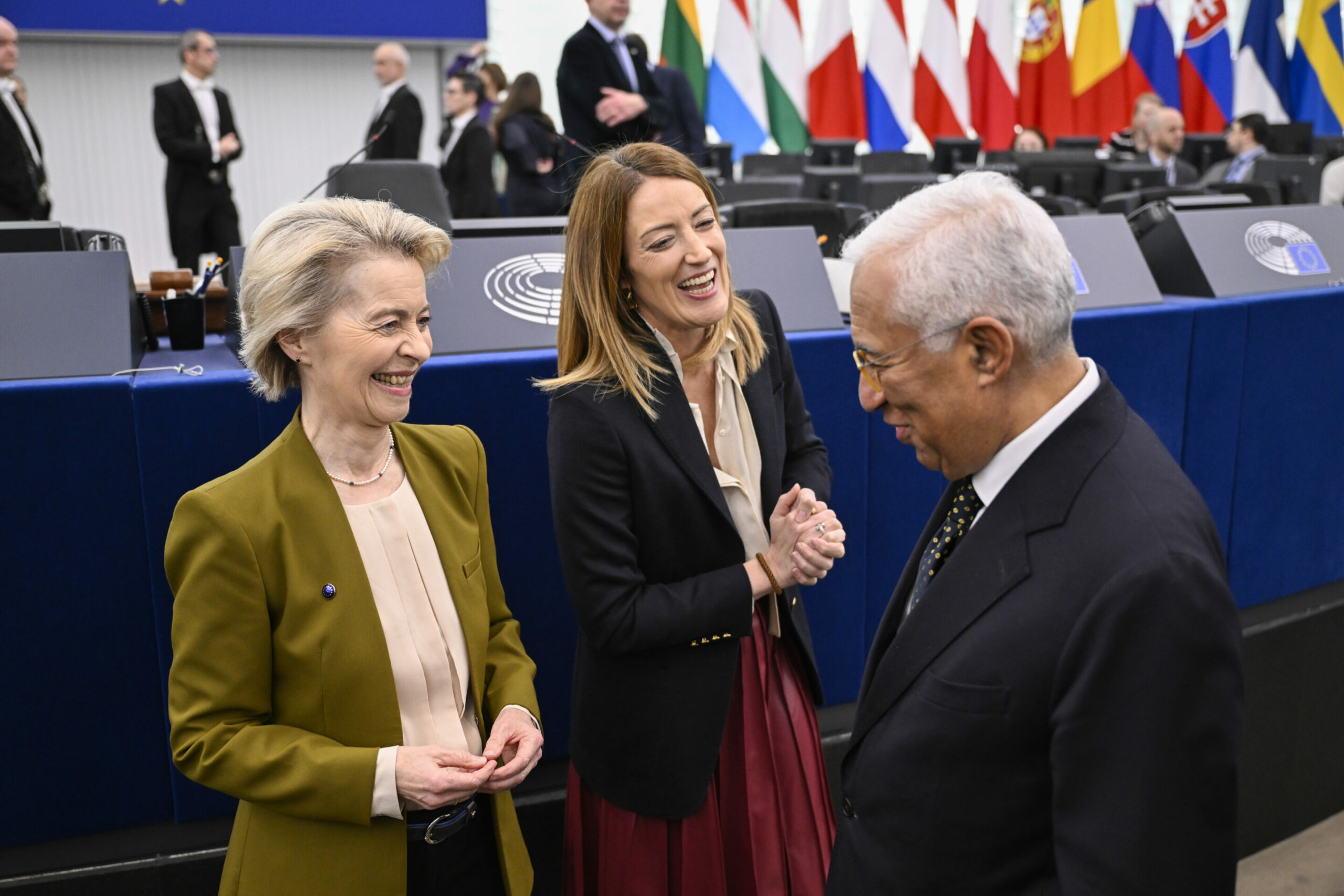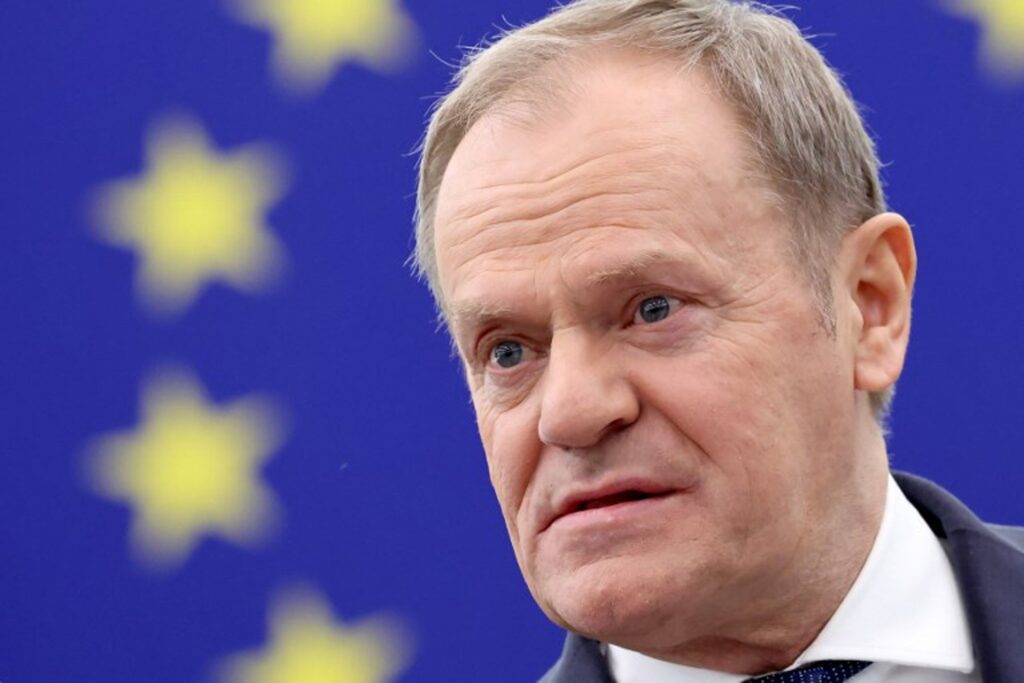Polish Prime Minister Donald Tusk called for a "radical" increase in defence spending during his address to the European Parliament in Strasbourg, France, on Wednesday.
Tusk warned that Europe must arm itself if it wants to survive. US President Donald Trump has urged NATO Member States to allocate 5% of their GDP to defence.
While some may find this demand "extravagant" or "brutal," Tusk argued that it should not be dismissed lightly.
"This is a time when Europe cannot afford to cut back on security," he emphasised.
Poland holds the presidency of the Council of the European Union for the first half of this year, and security has been established as the central theme of the presidency, Tusk presented in Strasbourg.
Currently, Poland spends nearly 5% of its GDP on defence, with Tusk noting, "We spend this not just for our country’s security, but for the whole of Europe."

Von der Leyen, Metsola and Costa exchange words before the plenary in Strasbourg. Credit: EP Photo
Poland shares a long border with Russia and Belarus and has been a strong advocate for military support to Ukraine, which was invaded by Russia nearly three years ago. The invasion has disrupted the security order in Europe.
"This is not our choice. I am not a militarist," Tusk stated, stressing that his country has suffered greatly from wars and seeks to prevent another. "To avoid repeating history, we must be well-armed, strong, and resolute," he concluded.
EU looks for new friends
During the same session in Strasbourg, European Commission President Ursula von der Leyen and European Council President Antonio Costa joined Parliament President Roberta Metsola to address MEPs.
"We have entered an era of intense geostrategic competition," von der Leyen declared on Wednesday to the European Parliament.
A multipolar world presents new opportunities for Europe if it strengthens its relations with third countries, according to European Council President Antonio Costa.
EU leaders stated their top priority would be "to engage in dialogue without delay, identify our common interests, and prepare for negotiations."
"We will be pragmatic in finding common ground. But make no mistake; we will never compromise on our European principles," von der Leyen asserted in Strasbourg.
"We are dealing with continental powers acting primarily in their self-interest." To face this, the Union must first strengthen economically, von der Leyen argued. She will present a competitiveness package next week to facilitate public and private investment in technology and energy.

